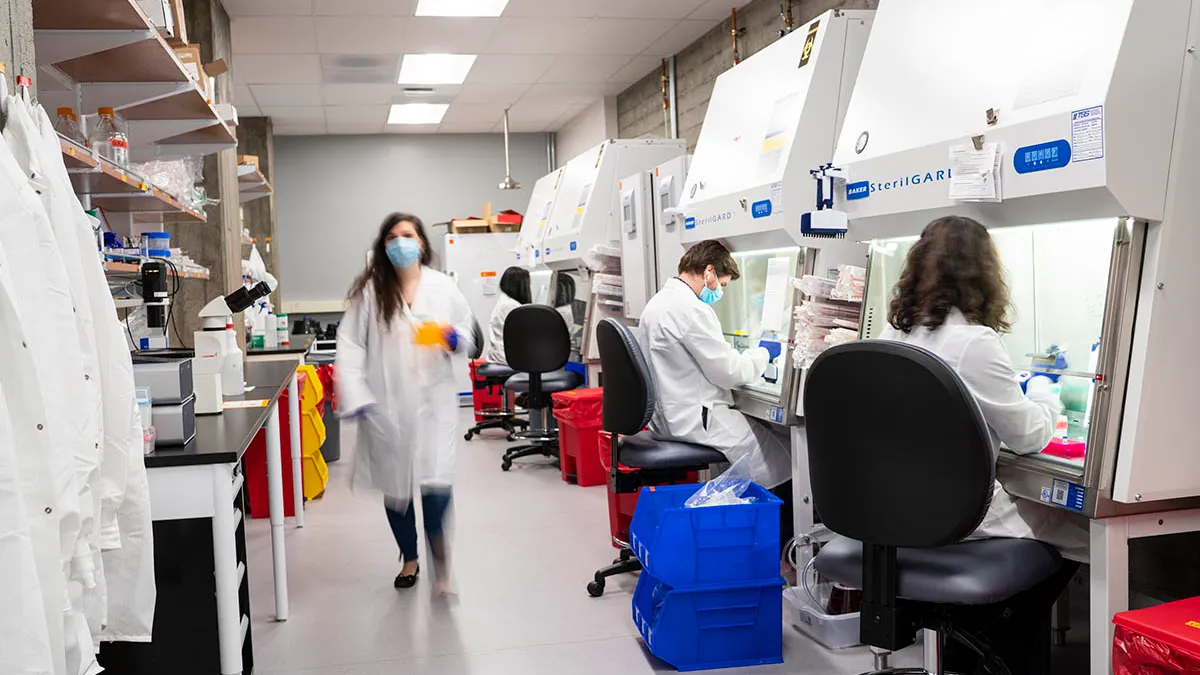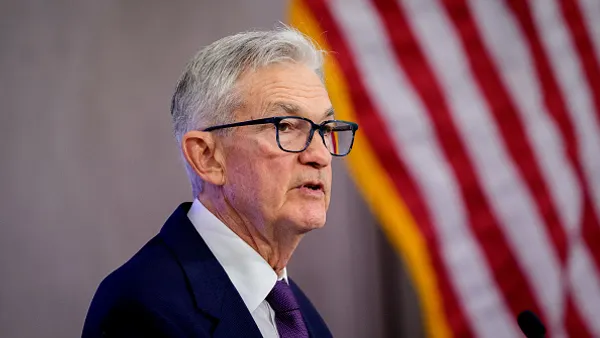Former Barclays executive David Parrot is bringing a number of lessons learned from his more than two-decade career in life sciences investment banking to his new role as CFO of biotech firm Scribe Therapeutics.
He is driven in part by a core belief that capital is the sector’s lifeblood. “In biotech, because you’re burning money to do research, the ability to access capital in all its forms is very, very important,” said Parrot, who joined the firm in December after previously serving as managing director responsible for Barclays’ West Coast life sciences and biotechnology investment.
Not raising enough to fund necessary research and projects, sometimes due to a concern about dilution, or not raising it soon enough, are common missteps that biotech firms make which Parrot plans to avoid. “I don’t want the company in any way shape or form to find itself with low cash balances,” he said in an interview. While there are limits on how much you can raise at the right valuations, he said, he has learned to "make sure companies are maybe overcapitalized a bit."
Scribe has both scientific star power and technology that sit in the hot gene-editing corner of the biotech sector that has drawn significant attention from investors, big pharmaceutical companies, the scientific community and beyond.
The Alameda, California-based Scribe aims to create therapies to treat the underlying causes of disease permanently by overcoming the limits of current genome editing technologies. It was co-founded by Jennifer Doudna, a professor at the University of California, Berkeley, who shared the 2020 Nobel Prize in Chemistry for pioneering work on CRISPR-Cas9, a method to edit DNA, according to The New York Times. Dr. Doudna is also the subject of a best-selling book, “The Code Breaker,” by Walter Isaacson.
IPO timing uncertain
But even for a company with Scribe's standout scientific pedigree the opportunities offered by the IPO financing market have dimmed for now. While bringing the company public is one of his mandates, Parrot acknowledges that the environment is not ideal. “I was definitely brought on to take us public at some point in time but the market right now is not conducive to that,” Parrot said.
Indeed many venture investors and startup executives are preparing plans to save cash while keeping companies private for longer as biotech IPOs have slowed to a trickle. The pace of the sector's offerings has cooled in the wake of poor performance in some recent IPOs and the Russian invasion of Ukraine, The Wall Street Journal reported. The SPDR S&P Biotech ETF, a closely watched index, fell by about 32% percent over the past 12 months while the S&P 500 is up about 13% over the same period despite recent volatility in the equity markets.
Still, Parrot believes, Scribe is in a well-cushioned negotiating position to explore other avenues for financing because it still has considerable capital from its last fundraise."The best time to raise capital is when you don't need it," he said. "You're not beholden to people leveraging your lack of capital and you can drive a better capital raising process."
Last year Scribe completed a $100 million Series B financing led by Avoro Ventures and Avoro Capital Advisors, along with OrbiMed Advisors, Andreessen Horowitz, and others including accounts advised by T. Rowe Price Associates and funds managed by Wellington Management.
One promising financing avenue right now are partnerships, Parrot said. Pharmaceutical companies are looking to add CRISPR technology to their pipelines through alliances to overcome their “innovation gap,” he said. The key for companies like Scribe that are going into such partnerships is to make sure to set up agreements with co-commercialization or other structures to ensure it receives its share of "the ultimate value of the partnership and the products that are being developed,” he said.
Scribe already has a partnering track record. It previously joined up with Biogen Inc. in 2020 to develop therapies jointly for treating underlying genetic causes of amyotrophic lateral sclerosis (ALS), also known as Lou Gehrig's disease. Under the terms, Scribe was to receive $15 million upfront and be eligible for more than $400 million in potential development and commercial milestone payments, according to a company statement at the time.
A strategic CFO
Parrot’s career path to the CFO seat is grounded in biotech finance. Before Barclays he was a managing director of investment banking in the healthcare group at SunTrust Robinson Humphrey and prior to that he was a managing director focused on advising biotech and pharmaceutical companies at BMO Capital Markets, according to his LinkedIn account. He also holds an MBA from Berkeley and has an undergraduate degree in Economics from Middlebury College.
At Scribe, Parrot will guide capital raises and strategic transactions and will also join the company's newly named controller, George Manning, in scaling core internal objectives and operating capabilities, Scribe CEO Benjamin Oakes stated in a press release. Parrot said Manning, most recently a senior director and assistant controller at Allogene Therapeutics, will provide support in the accounting and financial control area and make sure Parrot has the information needed for budgeting, financial planning, modeling and evaluations.
“I'm in charge of soup to nuts and George is my right hand person," Parrot said. "Ultimately I’m responsible for all the numbers and making sure all the accounting and audits are done on time and correctly.”














